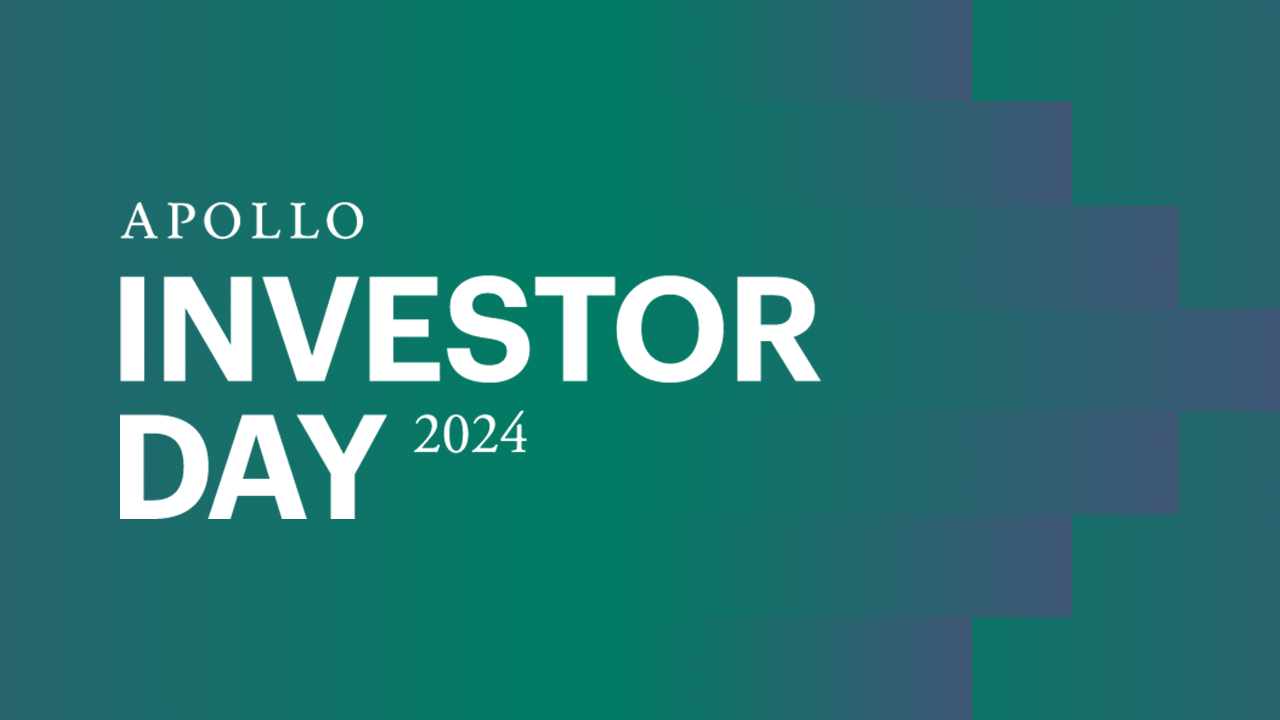March 20, 2023
Regional Q&A: Apollo Europe with Rob Seminara

Rob Seminara, Partner and Head of Europe, discusses Apollo’s growth and business strategy in Europe, where the team is seeing opportunities, and his favorite parts of the job.
Apollo has operated and invested in opportunities across Europe for nearly two decades. Rob Seminara, Partner and Head of Europe, recently took time to discuss Apollo’s growth and business strategy in Europe, where the team is seeing opportunities, and his favorite parts of the job:
Could you describe the growth Apollo has experienced in Europe in recent years? What are the team’s core business capabilities in the region?
We measure growth in terms of both people and capital. When I came to Europe 10 years ago, we had just under 50 employees. Today, we have close to 400. While London will continue to be the headquarters for our organization in Europe, we have developed local expertise around the EU and now have people in Luxembourg, France, Italy, Spain, Switzerland, Germany, and the Netherlands, among other locations. We expect to continue to grow our presence across different geographies, especially as we further expand our Global Wealth, Origination and Capital Solutions capabilities.
In terms of capital, our European team used to be involved in investing around 10% of our private equity fund capital, but in recent years that figure has since grown to over 25%, which includes work together with partners in our global offices. Across the full firm, nearly one quarter of Apollo’s total capital is managed in Europe given what we manage for Athora, our European retirement services business, and our Real Assets and Credit businesses.
"If you look at Apollo Europe today, it’s exciting to see how we’ve grown to establish European-focused businesses within Credit, Hybrid, Real Assets, and Retirement Services in addition to Private Equity. We’ve come a long way, and we still have more to look forward to in the future."
Rob Seminara, Partner and Head of Europe
How does Apollo’s European business fit into the firm’s broader global strategy? What makes Europe unique?
I sometimes joke that Apollo Europe is just a smaller version of our U.S. headquarters, but with better food! Jokes aside, I do think the buildout of our capabilities in Europe over the last decade has been incredibly meaningful, and in line with the growth we’re prioritizing around the world in areas like Global Wealth, Capital Solutions and Origination, to name a few. Executing on firm-level strategic priorities in a way that makes strategic sense in Europe is the best way to think about it.
The European market requires a nuanced approach, which makes it a uniquely challenging yet rewarding place to operate. To state the obvious, there are many distinct jurisdictions with their own regulations, customs, and cultures, and being able to navigate that is crucial. We primarily address this by having a diverse employee base, and we prioritize building trust in local relationships over time. Building meaningful relationships is paramount to our strategy. We like to show up in person and if, for example, there’s a meeting in Spain, you can bet that the Apollo team member will be able to speak Spanish. The same applies to our other key countries of operation as well. The reality is that almost all of our counterparts speak English fluently, but the ability to connect culturally and in someone’s native language matters.
How has the investment opportunity set in Europe changed recently? Which types of opportunities are the team most focused on today?
At the macro level, everything you’re seeing in the news from the war in Ukraine and persistent inflation is having an impact, especially on the European consumer. With interest rates up and an abundance of floating rate debt out there, people and companies are overall being more cautious. More recently, there have been concerns around the stability of the banking industry. While these concerns originally stemmed from issues at regional US banks, European institutions have not been immune, as evidenced by the recent rescue of Credit Suisse by UBS. The situation is evolving rapidly and hard to predict, so we are watching developments carefully.
"That said, I think some of the fears that people who sit outside the region have about Europe are a bit overstated. The European economy continues to adapt to the changing circumstances and will ultimately persevere through the short-term disruptions. If anything, the dislocation presents an investing opportunity for our capital."
Rob Seminara, Partner and Head of Europe
For our business, scarcity of capital, especially from traditional sources, has greatly elevated the importance of offering companies bespoke strategies, which has made our Credit, Hybrid Value and High-Grade Alpha teams especially busy. An abundance of companies with levered capital structures will need interesting solutions in this volatile environment that require creative, patient, and smart capital. I’m very confident in our team’s ability to act as a problem solver in these situations.
In European private equity, we’re firm believers in Apollo’s “purchase price matters” philosophy and have been focused on our core strategies of opportunistic buyouts, carve-outs and deleveraging situations. Using all three tools, we’ve been able to find great businesses that others did not appreciate. Overall things are very situational, but we’re optimistic that we can continue to find diamonds in the rough.
What are you most looking forward to in terms of Apollo’s future activity in Europe? What’s next?
While we expect to grow in several areas, I’m especially excited about the expansion of our Capital Solutions and Financial Institutions Group’s capabilities given the immediacy of opportunities there. We’ve done some great collaborative work with the banks so far, and going forward, I think this partnership-driven relationship will lead to some attractive growth opportunities and outcomes.
From an internal standpoint, perhaps most exciting is the upcoming move to our new London office. The space is truly state-of-the-art, complete with our Apollo signature coffee bar and cafeteria. While the European team has been great at collaborating across our platform, our new offices will fundamentally help us get better at this. Over half of our European employees joined after the start of the pandemic, so we’re excited to make up for the in-person time we lost from the remote work period and from having two offices while we waited for the completion of our new location. I am very much looking forward to bringing everyone together under one roof to see where we can take our collaborative culture.
What are the most challenging yet rewarding parts of your job as Head of Europe for Apollo?
Easily the most rewarding part is working with such a diverse and committed team. It has grown so much since I joined, and beyond just headcount. Our team members have citizenship in close to 50 different countries combined and are fluent in more languages than I can count. It’s a special and exciting time to be here!
In addition, we take pride in delivering on the challenging task of offering the full Apollo platform in Europe. Looking back, many people a decade ago used to only know us as a private equity house, but it’s been exciting to deliver so many more capabilities from across our business, and more creative solutions. The seamless connectivity we now have with our Apollo colleagues around the world is really to thank for that. We work incredibly well together and leverage the best and brightest at the firm in terms of functional and sector expertise to come up with solutions for European companies.
To end on a more personal note… now that you have a decade of experience as a London local, what would you say is your favorite part about living in Europe?
This one is easy… the travel! The United States is great, but its scale and location on the globe isolates most Americans from the rest of the world. Within two hours by train, I can be enjoying a weekend in Paris with my family. By airplane, you can easily spend a weekend in Rome, Barcelona, or Amsterdam, just to name a few examples. Travel, and ease of access to such a diverse array of museums and cultural institutions, would have to be my favorites.
Tags








